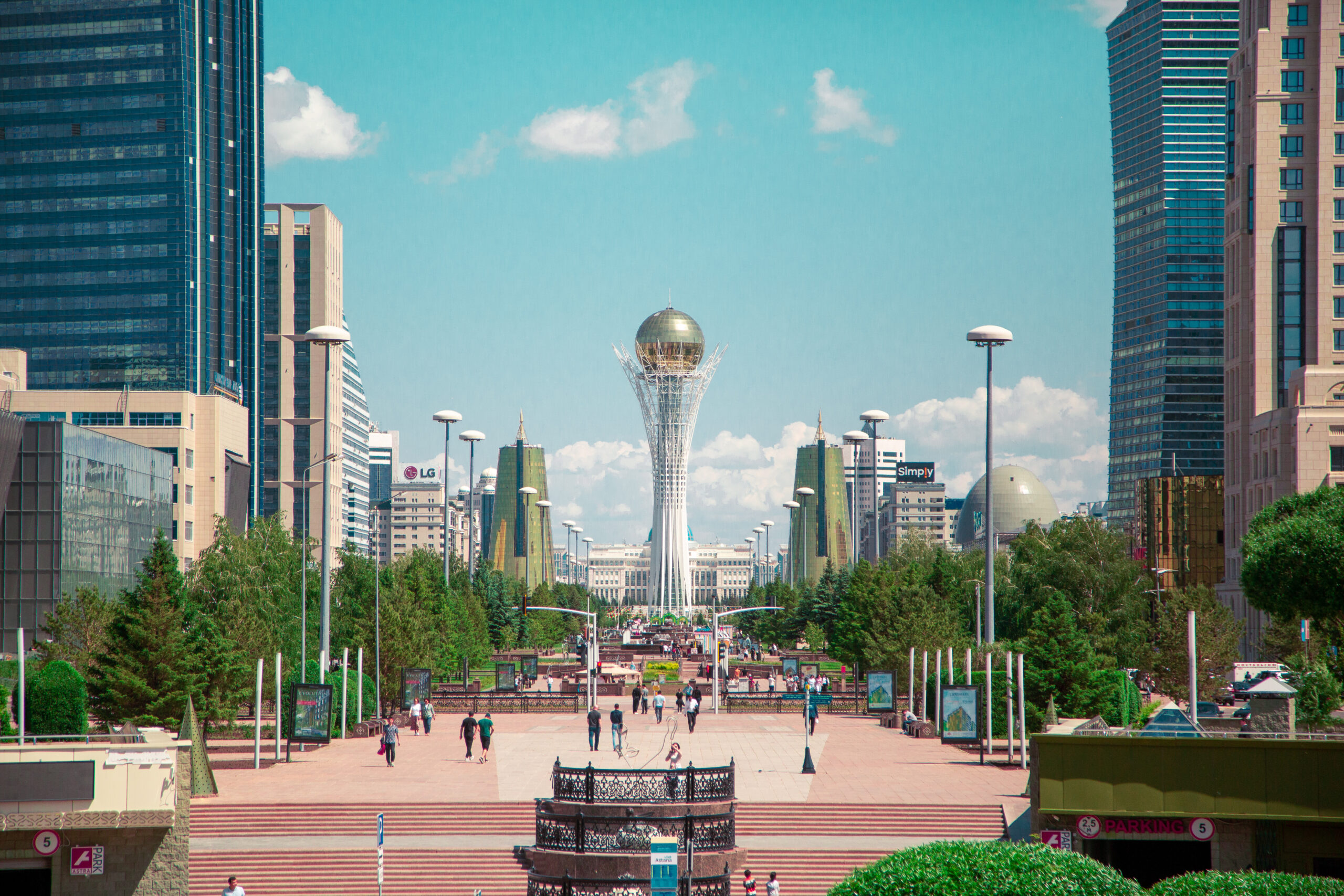ASTANA – The Astana Times has selected articles from global media outlets covering Kazakhstan. This week’s foreign media digest includes high-level visits, Middle Corridor competitiveness, digital economy, and more.

Photo credit: The Astana Times
Kishida to visit Kazakhstan in August for first Central Asia Summit
Japanese Prime Minister Fumio Kishida will be visiting Kazakhstan in August to hold his country’s first summit with the five Central Asian nations, reported Jiji on June 7.
Through the visit, Kishida hopes to strengthen Japan’s relations with Central Asia and enhance economic security, as the region is rich in natural gas and other mineral resources.
South Korea forges mineral partnership with Kazakhstan during President Yoon’s visit
South Korea is set to secure allies in Central Asia for supply chains of key minerals through South Korean President Yoon Suk Yeol’s state visit to three Central Asian nations. In particular, Kazakhstan, which Yoon visited on June 12, is a major resource-rich country that produces lithium and uranium, reported Business Korea on June 13.
The South Korean Ministry of Trade, Industry, and Energy announced on the same day that it signed three memoranda of understanding on core mineral supply chains, the power industry, and a joint economic committee to expand cooperation with the Kazakh government.
Yoon calls for broadening economic cooperation with Kazakhstan
President Yoon Suk Yeol said during his visit to Kazakhstan that Korea and Kazakhstan need to broaden the scope of economic ties beyond their traditional focus on the automotive and resource sectors to include critical mineral supply chains and infrastructure projects, reported The Korea Times on June 12.
During a bilateral business forum held as part of his state visit to Kazakhstan, Yoon underlined the need for expanding the areas of economic cooperation to better complement each other’s industries.
“Since the establishment of diplomatic relations in 1992, Kazakhstan has become Korea’s largest trading partner and investment destination in Central Asia,” Yoon said in a keynote speech.
Evolving EU-Kazakhstan relations offer new agriculture market opportunities
Kazakhstan is a growing market opportunity for European agricultural food and beverage exports, says European Union Agriculture Commissioner Janusz Wojciechowski, underlining what he hails as the emerging importance of an evolving EU-Kazakh relationship, reported Euractiv on June 12.
At the end of May, Wojciechowski led a delegation of 39 agri-food businesses and organizations from across the EU on a visit to Kazakhstan.
On his return, he took part in a Euractiv event on June 5 looking at the relationship between the EU and Kazakhstan, alongside Deputy Foreign Minister of Kazakhstan, Roman Vassilenko.
Both were keen to highlight how the bilateral relationship has evolved in recent years, marked by a growing emphasis on economic cooperation, political dialogue, and partnerships in various fields.
Central Asia becomes a key strategic region for the EU
The Loop Magazine, part of the European Consortium for Political Research, published an expert article on June 10, arguing that the Central Asian region has significant strategic importance, and a key role in facilitating trade between Europe and Asia. The European Union is therefore now seeking to strengthen economic, political, and security ties with Central Asian states.
The article points out that Kazakhstan is the first Central Asian state to conclude an Enhanced Partnership and Cooperation Agreement with the EU. As a result, Kazakhstan is now the EU’s fourth-largest supplier of durum wheat. Indeed, there are reports that Brussels and Astana now want to create an agri-food hub on Kazakhstan’s territory.
“Most recently, the EU and Central Asia held another summit. The High-Level Political and Security Dialogue between the countries of Central Asia and the EU, which took place on 5 June 2024, provided another opportunity for the EU and the representatives of Kazakhstan, Kyrgyzstan, Tajikistan, Turkmenistan, and Uzbekistan to discuss common security challenges,” the article notes.
New coordination platform – instrumental in making Middle Corridor competitive, says European Commission
The newly established Coordination Platform will be instrumental in making the Trans-Caspian International Transport Route (TITR), also known as the Middle Corridor, a competitive project, said Maja Bakran, Deputy Director General for Mobility and Transport, European Commission, reported Trend on June 13.
She made the remark at the event dedicated to the launch of the TITR Coordination Platform, held in Astana on June 12.
“The Coordination Platform will be instrumental in making the Trans-Caspian Transport Corridor a multimodal, modern, competitive, sustainable, predictable, smart and fast route linking Europe, the Caucasus and Central Asia. The coordination efforts among the various stakeholders will drive forward deeper connections and contribute to sustainable economic development of the region,” noted Maja Bakran.
StrategEast, Google team up to kickstart fresh initiative for Central Asia and Caucasus
StrategEast, an independent organization focused on the development of the digital economy in Eurasia, in collaboration with Google, has launched the Build with AI for Sustainable Growth project in Central Asia and the Caucasus, reported Trend on June 13.
This multi-month initiative aims to bring together developers from across the region to tackle sustainability challenges using AI technology. The initiative will be implemented in coordination with and supported by the governments of the region.
The finale of the program, in the form of a hackathon, is planned to take place in Astana in the fall this year. Top developer teams from Azerbaijan, Armenia, Georgia, Kazakhstan, the Kyrgyz Republic, Tajikistan, and Uzbekistan will present their prototypes or ready-made products for sustainable development in critical areas.
Wild horses return to Kazakhstan’s golden steppe after 200 years
For the first time in over two centuries, wild horses have galloped across the Golden Steppe of Kazakhstan, marking a historic reintroduction effort led by the Prague Zoo, reported News Track on June 13.
In early June, the Prague Zoo orchestrated two 18-hour airlifts of seven Przewalski’s horses from Europe to Kazakhstan. These horses, named Tessa, Wespe, Umbra, and Sary, have acclimated well to their new home on the plains, according to their caretakers.
